Advancing Energy Transition in ASEAN through Energy Efficiency and Gender-Responsive Policy
Wednesday, 19 June 2024
15:00 – 16:30 (JKT Time) / 10:00 – 11:30 (CEST)
The United Nations Environment Programme (UNEP) Mitigation Branch, Climate Change Division and the ASEAN Centre for Energy (ACE) share common objectives with regard to addressing the impacts of climate change and supporting the clean and just energy transition and wish to collaborate to further these common goals and objectives.
In a recently signed Memorandum of Understanding, UNEP and ACE have agreed on a framework of cooperation and collaboration to work towards a just transition to low-carbon and resource efficient economies and support the implementation of the programme area under the ASEAN Plan of Action for Energy Cooperation (APAEC), which serves as the regional blueprint on energy cooperation in ASEAN.
The agreed areas of cooperation, which focus on priorities and activities common to both organisations, will be facilitated by UNEP’s United for Efficiency (U4E), the Sustainable Mobility Unit, Cool Coalition, and EmPower: Women for Climate-Resilient Societies Phase II teams, include:
- Facilitating the advancement of energy efficient and sustainable cooling appliances and equipment by developing/updating minimum energy performance standards (MEPS) and strengthening the monitoring, verification and enforcement.
- Securing socio-economic benefits and meeting carbon mitigation targets set forth by the ASEAN Plan of Action for Energy Cooperation (APAEC) by enhancing the capacity of regional energy information and monitoring networks through south-south cooperation and knowledge sharing.
- Collaborating on advancing the recommendations from the Roadmap on Accelerating ASEAN Renewable Energy Deployment through Gender-Responsive Energy Policy (ASEAN RE-Gender Roadmap).
- Working together to build regional awareness and capacity on passive cooling, heat resilient planning, district cooling and National Cooling Action Plans.
- Cooperating on energy efficiency in the road transport sector in Southeast Asia.
This webinar provided an overview of the current activities in these areas in the region and an insight into plans for future activities.
For more information, please contact/visit: ACE | U4E | Cool Coalition | EmPower | Sustainable Mobility Unit.
Alternatively, see the agenda below and the presentations from the webinar at the bottom of this page.
Agenda
| Time (GMT+7) | Activity | Speaker |
| ACE-UNEP MoU Signing Ceremony MC: Aurelia Syafina Luthfi, ACE |
||
| 15:00 – 15:05 | Opening Remarks from ACE | Dr Nuki Agya Utama Executive Director, ACE |
| 15:05 – 15:10 | Opening Remarks from UNEP | Dechen Tsering Division Director, Climate Change Division, UNEP |
| 15:10 – 15:20 | MoU Signing Between ACE & UNEP
Dr Nuki Agya Utama, Executive Director, ACE & |
Led by MC |
| Panel I: Enhancing Energy Efficiency in Appliances, Cooling and Transport in ASEAN Moderator: Rio Jon Peter Silitonga, ACE |
||
| 15:20 – 15:27 | Strengthening Collaboration Towards Energy Efficient Features in ASEAN | Mardika Firlina ACE |
| 15:27 – 15:34 | Harnessing the Benefits of Energy Efficiency in Appliances and Equipment | Patrick Blake U4E, UNEP |
| 15:34 – 15:41 | Maximizing the Impact of Passive Cooling, Heat-Resilient Planning, District Cooling and National Cooling Action Plans | Lily Riahi Cool Coalition, UNEP |
| 15:41- 15:48 | Transforming the Transport Sector to Sustainable Mobility | Yeonju Jeong Sustainable Mobility Unit, UNEP |
| 15:48 – 16:03 | Q&A Session | Led by Moderator |
| Panel II: Advancing Sustainable Energy and Gender Inclusion in ASEAN Moderator: Aldilla Noor Rakhiemah, ACE |
||
| 16:03 – 16:10 | Collaborative Efforts in ASEAN’s Energy Transition and Gender Mainstreaming | Amira Bilqis ACE |
| 16:10 – 16:17 | Gender Just Transition for Climate Resilience | Alexandra Mutungi EmPower, UNEP |
| 16:17 – 16:27 | Q&A Session | Led by Moderator |
| Closing Session MC: Aurelia Syafina Luthfi, ACE |
||
| 16:27 – 16:30 | Closing Remarks | Dr. Zulfikar Yurnaidi ACE |
Presentations
Harnessing the Benefits of Energy Efficiency in Appliances and Equipment

